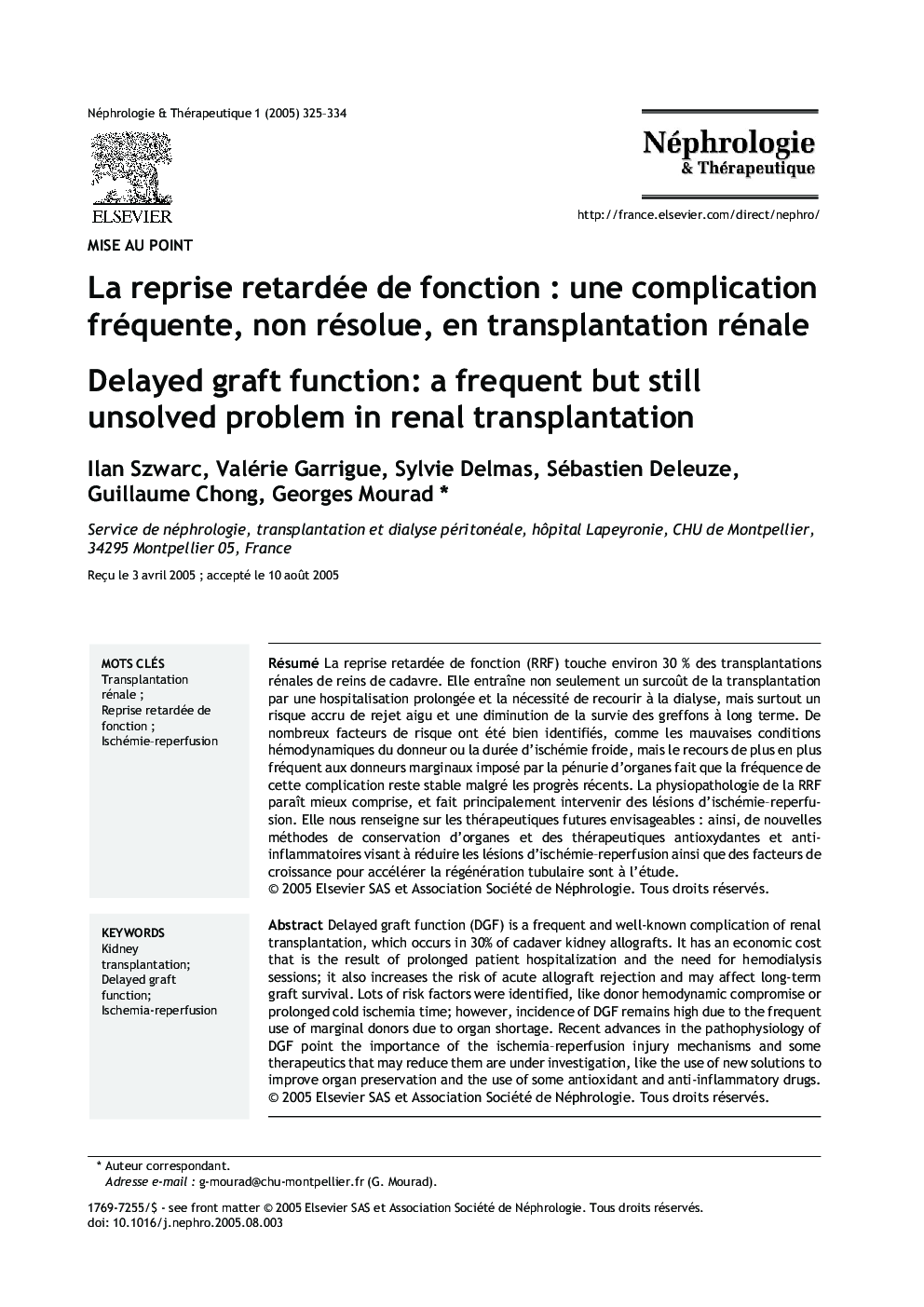| Article ID | Journal | Published Year | Pages | File Type |
|---|---|---|---|---|
| 9311321 | Néphrologie & Thérapeutique | 2005 | 10 Pages |
Abstract
Delayed graft function (DGF) is a frequent and well-known complication of renal transplantation, which occurs in 30% of cadaver kidney allografts. It has an economic cost that is the result of prolonged patient hospitalization and the need for hemodialysis sessions; it also increases the risk of acute allograft rejection and may affect long-term graft survival. Lots of risk factors were identified, like donor hemodynamic compromise or prolonged cold ischemia time; however, incidence of DGF remains high due to the frequent use of marginal donors due to organ shortage. Recent advances in the pathophysiology of DGF point the importance of the ischemia-reperfusion injury mechanisms and some therapeutics that may reduce them are under investigation, like the use of new solutions to improve organ preservation and the use of some antioxidant and anti-inflammatory drugs.
Related Topics
Health Sciences
Medicine and Dentistry
Nephrology
Authors
Ilan Szwarc, Valérie Garrigue, Sylvie Delmas, Sébastien Deleuze, Guillaume Chong, Georges Mourad,
